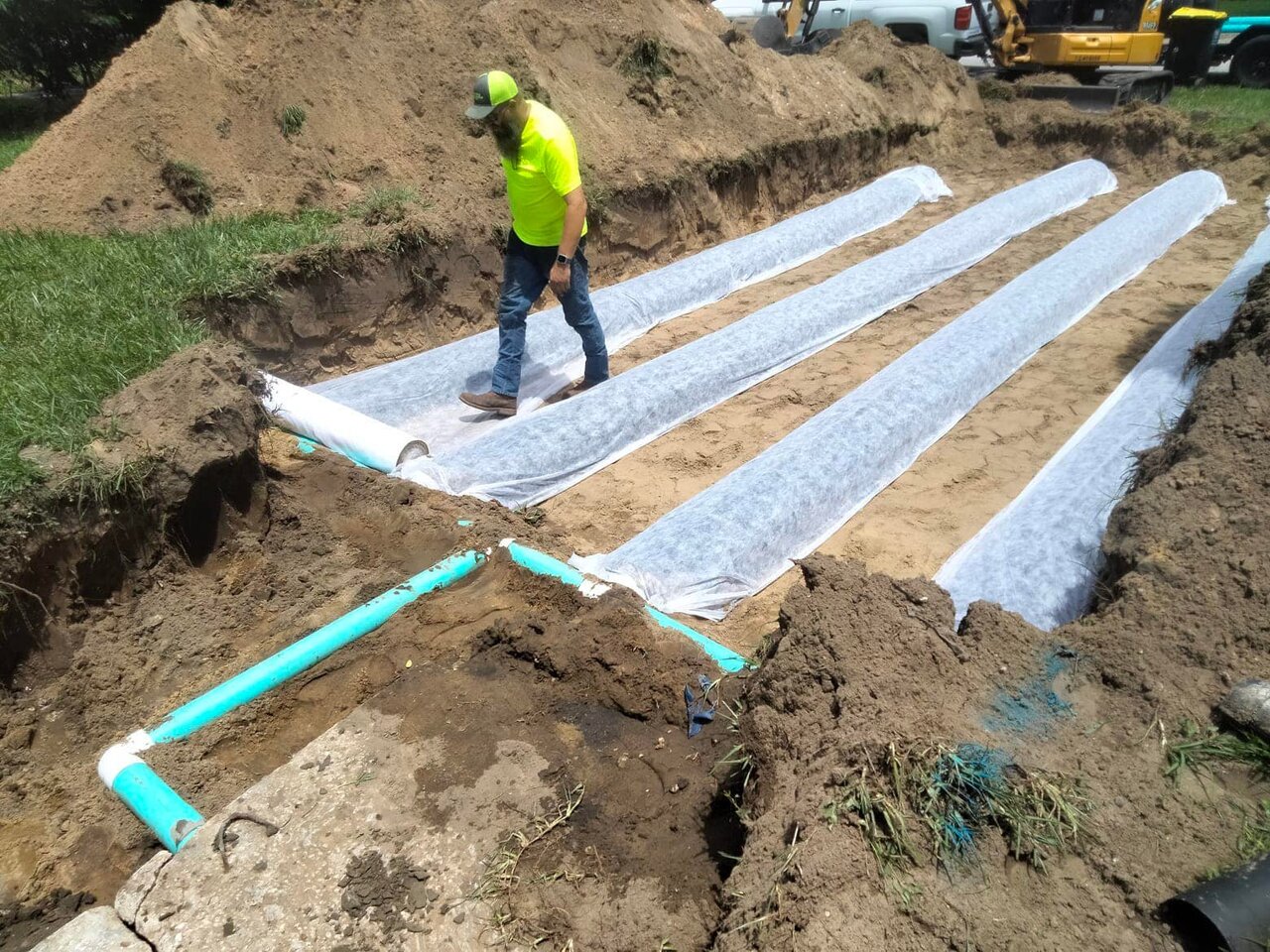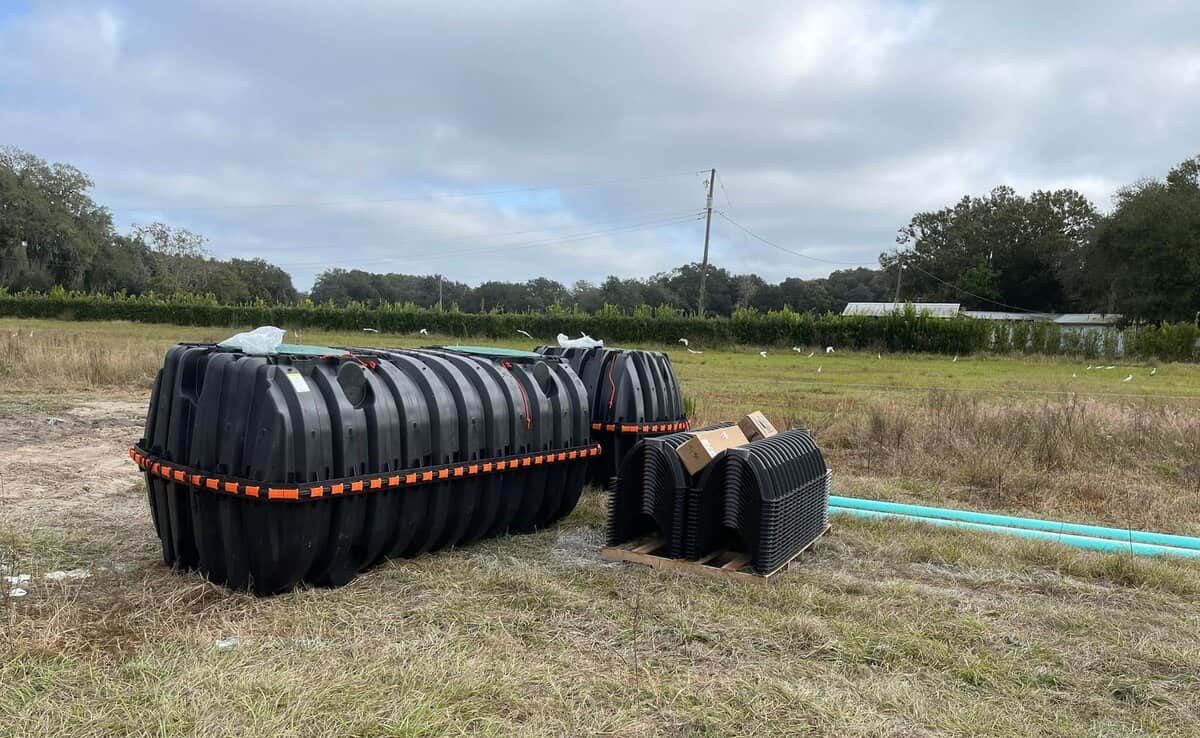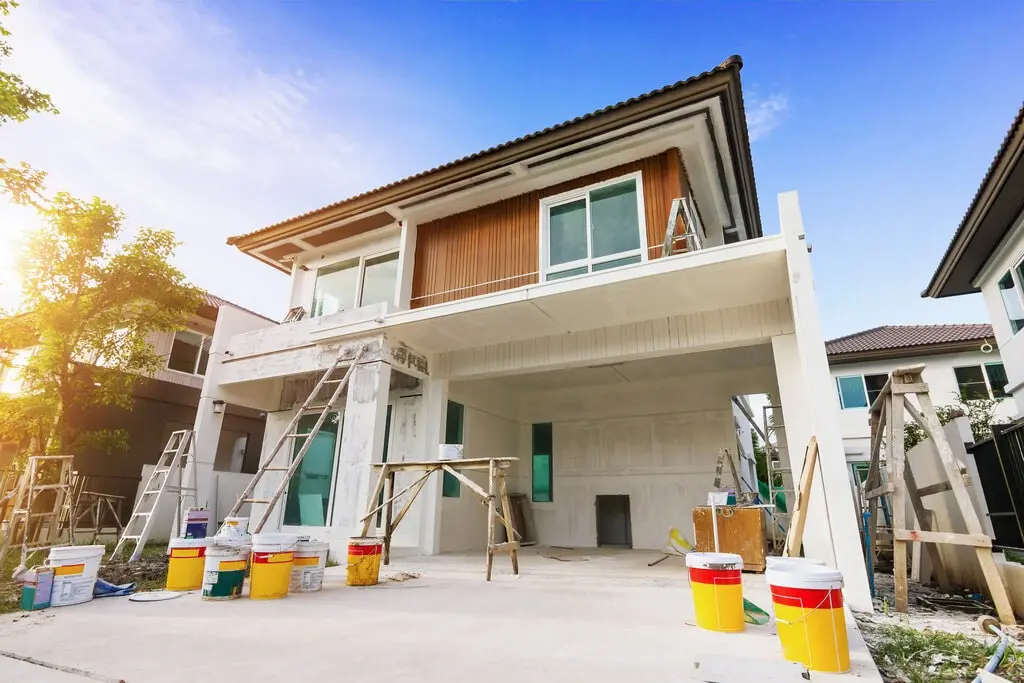Sand mound septic systems are one type of onsite wastewater treatment system. They are most commonly used in areas with high water tables, shallow soil depth, or shallow bedrock.
Sand mound septic systems use a specially designed leach field, which is also known as an engineered drain field. This type of leach field uses sand to dissipate the sewage effluent.
A sand mound septic system includes a pump chamber that houses a submersible pump. The pump is used to lift the sewage effluent from the septic tank to the leach field. A control panel is also located in the pump chamber. This controls the pumping cycle and alarms in the event of a power failure or a clog in the system.
The leach field is usually located above the water table. It consists of a series of trenches that are filled with sand. The trenches are covered with an impermeable liner, such as polyethylene, to prevent contamination of the groundwater. Each trench has perforated pipes that allow the sewage effluent to seep into the sand and be dispersed.
The sand mound septic system is a reliable and effective way to treat sewage effluent. However, it is important to have sand mound septic system design and installation done by a qualified professional. The leach field must be properly sized and located to ensure that it functions properly. In addition, the pump chamber and control panel must be maintained according to the manufacturer’s instructions. Regular maintenance of the sand mound septic system is essential to its proper functioning.

Sand Mound Septic System Pros and Cons
Sand mound septic systems, like any other type of septic system, have advantages and disadvantages.
Pros
Location Feasibility
The main advantage of sand mound septic systems is that they can be used in areas where traditional leach fields would not work, such as property with shallow bedrock or a high water table. The sand allows for better drainage and prevents the effluent from saturating the soil.
Water Table Protection
One of the benefits of a sand mound septic system is that it helps to protect the surrounding water table. By dispersing the sewage effluent into the sand, it prevents it from coming into contact with the water table. This helps to protect both the quality of the groundwater and the environment.
Increased Treatment
Another benefit of a sand mound septic system is that it provides increased treatment of the sewage effluent. The sand does a good job of filtering out contaminants and bacteria, providing cleaner effluent than would be produced by a conventional septic system.
Cons
Space Requirements
One downside of a sand mound septic system is that it can sometimes require more space than a conventional septic system. The leach field must be located above the water table, which can limit the available space on a property. In addition, the leach field must be large enough to accommodate the volume of effluent produced by the septic system.
Cost
Another downside of a sand mound septic system is that it can be more expensive than a conventional septic system. The extra costs associated with the pump chamber, control panel, and leach field can add up. However, the long-term benefits of a sand mound septic system may outweigh the initial cost, and it may be the only option.
Maintenance
As with any septic system, regular maintenance is essential to avoid having sand filter septic system problems. The leach field should be inspected on a regular basis and cleaned as often as needed. In addition, the pump chamber and control panel must be maintained according to the manufacturer’s instructions.

How to Care for a Sand Mound Septic System
If you have a sand mound septic system, there are certain things that you need to do to keep it working properly. Here are some tips and suggestions for sand mound septic system care:
- Have your entire septic system inspected regularly. It is important to have your septic system inspected by a professional at least every three years. During an inspection, the professional will check the condition of the leach field and pump chamber. They will also pump out any effluent that has accumulated in the system.
- Avoid planting trees or other plants with long roots near the septic drain field, because these can cause clogs or damage.
- Do not drive or park vehicles on the drain field or build structures on the drain field, since this can compact the soil or sand, rendering it less effective.
- Be sure that water is diverted away from the drain field to avoid overloading it.
- Balance water usage by using low-flow bathroom and kitchen fixtures and laundry appliances. Limit showers and baths to keep too much water from being pushed through the system.
- Have the leach field inspected regularly and maintained as needed to prevent clogs and backups. A qualified professional can clean the leach field for you.
- Pump out the septic tank as needed. The septic tank should be pumped out every three to five years. This will help prevent effluent from overflowing into the leach field.
- Repair any damage to the system promptly. If there is any damage to your septic system, it is important to have it repaired promptly by a qualified professional.
By following these tips, you can help ensure that your sand mound septic system works properly for many years.
If you are considering a sand mound septic system for your home, it is important to weigh the pros and cons carefully. Be sure to consult with a qualified professional to ensure that a sand mound septic system is the best option for your property.
Septic Service In & Near Lakeland
When you need a septic company in and near Lakeland, contact Septic and Drainfield Depot. As a licensed and insured septic company, we can provide whatever commercial or residential septic service you need.
Our services are available 24/7 to assist with septic emergencies, and we offer septic financing to help cover costs.
Contact us today for a free evaluation and estimate.







